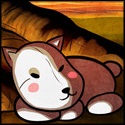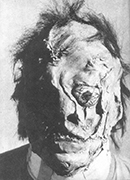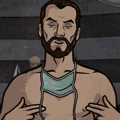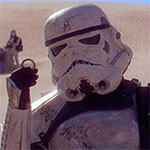|
quote:What is some good reading about Aparthied and all the stuff with Rhodesia? I keep seeing this come up lately with the right whining about white farmers but I don't feel really educated in the subject to feel confident talking about it. Asking for a friend. Can anyone recommend a good starting point?
|
|
|
|

|
| # ? Apr 25, 2024 04:40 |
|
On the Congo, read King Leopold's Ghost.
|
|
|
|
And prepare to be super depressed. I've also just put on order a copy of The Assassination of Lumumba for more recent event readings. On another topic... How solid is the scholarship behind Bury My Heart at Wounded Knee? It's one of the most captivating histories I've ever read, as depressing as it is. Reads like a grand adventure tale into the misery of the 19th century manifest destiny mindset of the post war era. Really nailed the indigenous perspective from what I know from my other readings. I'll be following it up with Clearing the Plains for a Canadian take with heavy footnotes.
|
|
|
|
|
Any recommendations for books on Native Americans, especially in the context of how the US govt hosed them? My fathers on a bit of a kick reading about them and heís really coming around to ďholy poo poo they got a raw dealĒ which is kind of a big thing for a 70 year old guy raised on Gunsmoke and The Lone Ranger. I think heís a leash read 1491. Needs to be readable for an educated man who isnít a historian. I think I threw him Facing East From Indian Country a few years back and he bounced off.
|
|
|
|
Are there any good books out there on Operation Dragoon? It came up during a discussion about WWII and I realised I knew next to nothing about it. It for obvious reasons tends to get overshadowed by D-Day and treated a sideshow.
|
|
|
|
Cyrano4747 posted:Any recommendations for books on Native Americans, especially in the context of how the US govt hosed them? Literally in the post above yours. Bury my Heart is excellent
|
|
|
|
|
Bilirubin posted:Literally in the post above yours. Bury my Heart is excellent Awesome.
|
|
|
|
On a related note, what can be recommended about Native American history BEFORE the Europeans came over? Or at least up until 1800 or so?
|
|
|
|
1491 is the usual recommendation, as the broad survey; the Americas are a big place. It's very good, as is the sequel1493 about the effects of the Colombian exchange. I quite enjoyed Facing East from Indian Country, but it's very focused on what is the modern USA. PittTheElder fucked around with this message at 20:52 on Jun 18, 2020 |
|
|
|
PittTheElder posted:1491 is the usual recommendation, as the broad survey; the Americas are a big place. It's very good, as is the sequel1493 about the effects of the Colombian exchange. Thanks! I watched a general overview documentary and got interested in the relationships between tribes (alliances, feuds, trading, etc), if that helps clarify what I'm looking for. Although I'd appreciate tribe-specific books, particularly on the Kiowa, if anyone has any recommendations.
|
|
|
|
MathMathCalculation posted:On a related note, what can be recommended about Native American history BEFORE the Europeans came over? Or at least up until 1800 or so? This isn't really what you want, but I'm going to recommend it anyway, because it's a good book and you should read it. Pekka Hamalainen's "The Comanche Empire" looks at the Comanche and their rise and fall from like the 1750s to the 1870s, focusing on how they built up an empire made up of a vast trading network, as well as a network of allies, tributaries, and subjugated tribes, and used that to militartily and economically dominate the Plains and fight and win a bunch of wars against Mexico and the US, until their empire was finally destroyed by the US army.
|
|
|
|
Cyrano4747 posted:Any recommendations for books on Native Americans, especially in the context of how the US govt hosed them? Peter Cozzens's The Earth is Weeping is heavy (understandable given the subject matter), but very readable.
|
|
|
PittTheElder posted:1491 is the usual recommendation, as the broad survey; the Americas are a big place. It's very good, as is the sequel1493 about the effects of the Colombian exchange. 1491 is very good and brilliantly researched but it has a strongly revisionist bent, almost apologetic. its deliberately setting out to paint the societies it covers in the best possible light while castigating the europeans. thats not a bad position for a work of polemic, but as history it leaves something to be desired because it strips away a lot of nuance and occasionally puts Mann into some awkward corners. it means he can't spend more than a page and a half on human sacrifice, for example, and has to spend much of that space defensively comparing it to public executions in contemporary Europe
|
|
|
|
|
I don't think Mann's thesis was that native societies were particularly moral or superior compared to European ones. Merely that they existed and were large and sophisticated. And that Tenochtitlan was extremely populous I guess. I'd agree that it is super revisionist, but given the popular conception of pre-Colombian America, it should be.
|
|
|
|
no course he doesn't outright say "here's why they were superior" but the general bent of his historiography is towards apologetics, which i dont think does his subjects or his readers any favors and deprives the latter of a nuanced understanding of the former. it also denotes a major lack of trust in his readers. to go back to my original example, human sacrifice played a crucial role in aztec religion alone, and hurriedly (and defensively) glossing over it by effectively saying "well the other guys did it too" (and scale be damned) means that not only do we get a skewed image of that religion but we don't actually get to understand human sacrifice's role in it on its own terms. we dont get to understand why they thought it was not only acceptable but a positive good, a necessity. we're prevented from coming to grips with a culture in all of its alterity, and we're impoverished for it. chernobyl kinsman fucked around with this message at 05:11 on Jun 19, 2020 |
|
|
|
|
this is a bad habit of a lot of pop history writers. pop books and blogs or whatever about the middle ages regularly pull moves like "yes, they burned heretics, but what about the modern prison-industrial complex?" that doesnt help your writers get past "people always do bad things". it's hard, but much more useful, to help them understand why they do things that other cultures or time periods think are bad. why, in their own words and in their own minds, did people in the middle ages sometimes set other people on fire? if we don't get there, we don't come any closer to understanding other peoples or pasts. i recognize that the drive is to rehabilitate your subject to modern western eyes by getting the latter to suspend judgment, but its a lazy way of doing it that robs your reader and greatly diminishes your subject. its an abdication of responsibility, and it just shores up the reader's moral judgment anyway. it essentially says "yes, the thing you think is bad (human sacrifice/burning heretics) was bad, but you guys (medieval europeans/modern americans) do bad stuff too, so you can't judge." anway 1491 is good besides all of that but that poo poo really does bother me chernobyl kinsman fucked around with this message at 05:24 on Jun 19, 2020 |
|
|
|
|
What are the recommendations for books on the Iraq War? Probably focusing on the whole lead up on, the idiots in charge of the whole war and the aftermath on how bad we hosed up the country. Digital Jedi fucked around with this message at 06:28 on Jun 19, 2020 |
|
|
|
Digital Jedi posted:What are the recommendations for books on the Iraq War? The second one? Try Fiasco: The American Military Adventure in Iraq, by Thomas Ricks. He wrote the book in 2006, so obviously it ends there, but it's still a good look at the problems in planning and then, after the conquest, in occupation and administration.
|
|
|
|
Epicurius posted:The second one? Try Fiasco: The American Military Adventure in Iraq, by Thomas Ricks. He wrote the book in 2006, so obviously it ends there, but it's still a good look at the problems in planning and then, after the conquest, in occupation and administration. Yes, the 2nd one. I'll look into that one. Sounds exactly what I'm looking for. And that's a long enough time period. I'm not really expecting anything that up to date.
|
|
|
|
Digital Jedi posted:What are the recommendations for books on the Iraq War? I think I learned more about the character of the Iraq War from Rajiv Chandrasekaran's Imperial Life in the Emerald City: Inside Iraq's Green Zone than from anything else.
|
|
|
|
Epicurius posted:The second one? Try Fiasco: The American Military Adventure in Iraq, by Thomas Ricks. He wrote the book in 2006, so obviously it ends there, but it's still a good look at the problems in planning and then, after the conquest, in occupation and administration. Fiasco is 2003 to 2005. He wrote a follow-up, The Gamble, that covers probably through the end of the Bush Admin, but is more focused on Petraeus. It was published in December 2009.
|
|
|
|
MathMathCalculation posted:On a related note, what can be recommended about Native American history BEFORE the Europeans came over? Or at least up until 1800 or so? These are two very niche aspects of Native American history, but might still be of interest: Fossil Legends of the First Americans by Adrienne Mayor, which explores how Native Americans interpreted fossils they found and the idea of extinct life, as well as helping to shape how later settlers began fossil hunting in the 1800s In Search of First Contact by Annette Kolodny, which is about how the Norse sagas about Viking exploration of Canada shaped the American public in the 1800s, but includes a substantial section where she records Native American oral histories on their encounters with the Vikings and how the Natives interpreted them
|
|
|
|
GoingPostal posted:I'm almost done with Johnathan Parshall's book Shattered Sword (it's really great and I can't recommend it enough) and in the conclusions he references the Battle of Tsushima heavily in the lessons Japan learned in naval warfare. Parshall and Tully also wrote Kaigun, a monograph on how the IJN got to the place that it begins Shattered Sword at. Tsushima plays a big role in it. It's a good deal more academic than Shattered Sword, so I don't know if an audiobook is available.
|
|
|
|
Cyrano4747 posted:Any recommendations for books on Native Americans, especially in the context of how the US govt hosed them? An Indigenous Peoples' History of the United States, or perhaps the Young People edition.
|
|
|
|
Autumn of the Black Snake by William Hogeland looks at the creation of the US Army and its deployment against the Native American confederacies west of the Mississippi. Does a good job of looking at the politics of post-Revolution America ,its focus on westward expansion, and the resistance it faced from Native Americans. It's fairly readable, although I'd take a look at an excerpt since I'm fairly immune to bad academic prose and don't have a good sense of what's readable and what isn't anymore.
|
|
|
|
Autumn of the Black Snake is pretty easy reading but the beginning was a little boring for me.
|
|
|
|
Reiterpallasch posted:Parshall and Tully also wrote Kaigun, a monograph on how the IJN got to the place that it begins Shattered Sword at. Tsushima plays a big role in it. It's a good deal more academic than Shattered Sword, so I don't know if an audiobook is available. I can't find a book by that name by them. Did you mean this one? https://www.goodreads.com/book/show/1283911.Kaigun
|
|
|
|
Ah crap, I had authors mixed up. Sure did, that explains the dramatic shift in writing style...
|
|
|
|
I would recommend Shadows at Dawn by Karl Jacoby for a great case study of violence and life on the frontier. This wasnít the question, but I also want to recommend Like A Hurricane by Paul Chaat Smith and Robert Allen Warrior for anyone interested in learning about Native American radical protests in the Civil Rights era.
|
|
|
|
any good books on early human agriculture/ late Paleolithic life? I read after the ice, and Iím looking for something in that vein.,
|
|
|
|
PawParole posted:any good books on early human agriculture/ late Paleolithic life? Don't know if it's what your looking for but the book Neolithic by Susan McCarter is a basic textbook on the Neolithic, especially the question of why and how people started farming but in broad strokes. The Cambridge World History of Food has a few chapters on it as well as many essays about specific crops, you can get it for free at libgen.is. Both of them get into how people's health and lifespans generally deteriorated after switching to sedentary lifestyle, which raises interesting questions about why it happened.
|
|
|
|
PawParole posted:any good books on early human agriculture/ late Paleolithic life? The first section of "Lost Feast: Culinary Extinction and the Future of Food" covers this. Whole book is worth reading even if the rest isn't about the Paleolithic.
|
|
|
|
PawParole posted:any good books on early human agriculture/ late Paleolithic life? Europe Between the Oceans by Barry Cunliffe is a really interesting look at how life in Europe evolved and changed from 9000 BCE-1000 CE, so a lot of the book deals with how, where, when, and why different European societies transitioned from hunter-gatherer lifestyles to agricultural ones.
|
|
|
|
PawParole posted:any good books on early human agriculture/ late Paleolithic life? How was After the Ice?
|
|
|
|
I recently finished The Pioneers: The Heroic Story of the Settlers Who Brought the American Ideal West by David McCullough and I was extremely disappointed. It really should have been titled "The Early History of Marietta, Ohio as told by the diary entries of 3 white dudes". Are there any good books on early American pioneers with a larger scope and more sources? Also I asked earlier but didn't get any responses, any good books on the history of the Indian film industry?
|
|
|
|
bowser posted:Also I asked earlier but didn't get any responses, any good books on the history of the Indian film industry? One that comes to mind, although it's only on an aspect of the Indian film industry, is "Fashioning Bollywood: The Making and Meaning of Hindi Film Costume"
|
|
|
|
You can also discuss history books in the Book Barn discord: https://discord.gg/jgBDB25
|
|
|
|
Safety Biscuits posted:How was After the Ice? pretty good
|
|
|
|
Does anyone know any good books on human settlement in the arctic? If it's about Inuit specifically that's alright but I'm also fascinated by the "paleo-Eskimo" who were there before them. It blew my mind when I found out people were living on Greenland over three thousand years ago.
|
|
|
|

|
| # ? Apr 25, 2024 04:40 |
|
Grevling posted:Does anyone know any good books on human settlement in the arctic? If it's about Inuit specifically that's alright but I'm also fascinated by the "paleo-Eskimo" who were there before them. It blew my mind when I found out people were living on Greenland over three thousand years ago. Brian M. Fagan's 1987 "The Great Journey: The Peopling of Ancient America" is probably the closest thing I've personally read that would cover paleo-Eskimos. VilhjŠlmur StefŠnsson's 1913 "My Life with the Eskimo" is an influential early anthropological study of the Eskimo and their history from his time living with them. To a lesser extent also his 1938 "Unsolved Mysteries of the Arctic" Helge Ingstad's 1966 "Land under the Pole Star" is about the Norse settlement of Greenland but has a lot about the Inuit and their interactions with the Norse.
|
|
|











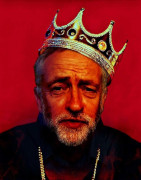



 Yes, it's like a lava lamp.
Yes, it's like a lava lamp.

